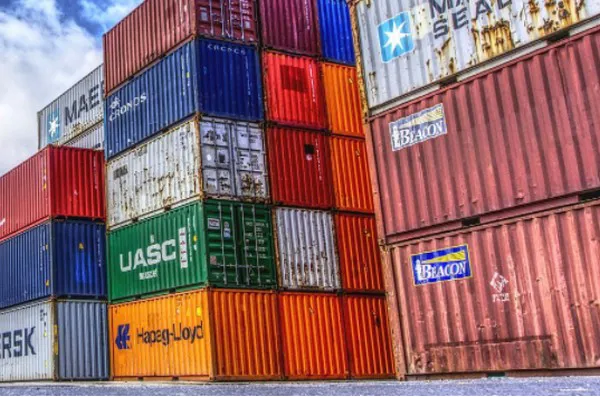Calls for a secure port are louder than ever in Rotterdam. With the 'secure data sharing' programme, Portbase, together with the port community, is helping make the port of Rotterdam secure. It does so by establishing reliable information exchange between the various links in the container logistics chain.
With its Port Community System (PCS), Portbase has been ensuring smooth handling in Dutch ports for almost 20 years, by allowing the core processes in the ports to rest on trusted and reliable basic infrastructure for storing, accessing and sharing data.
Special programme
Rising (cyber) crime means that security in the port of Rotterdam is high on everyone's agenda. Of course, or perhaps especially, when it comes to sharing data. Calls for secure operations in the port, with reliable parties and data, prompted Portbase, together with the port community, to develop a special programme: 'Secure data sharing'. Peter de Graaf, managing director of Portbase, explains: "This programme focuses on a chain-wide approach, with concrete solutions to make the information exchange between the different links in the container logistics chain more secure."
Three basic principles
The 'Secure data sharing' programme has three basic principles: secure identities, secure processes and a secure platform. In short, it is about implementing multi-factor authentication (MFA) and working with authorisations. But it is also, for example, about more layered security for the PCS.
Cooperation
A current practical example shows what the 'Secure data sharing' programme can achieve. Until now, a container in the port of Rotterdam is released using a pin code, a 'key'. By linking up with the 'Secure data sharing' programme, only authorised companies and their employees can carry out the necessary digital actions and obtain information within the Portbase services in relation to the container release process.
Portbase achieves this by developing applications for the port business community that can create closed chains. Only authorised parties will have access to the closed chain. An account and the right 'key' are therefore no longer sufficient, as an additional layer of security has been added with the application of authorisations.
Moreover, Portbase makes the PCS suitable for third-party solutions that add an extra layer of security. For example, shipping companies can choose to digitally encrypt PIN codes. Hapag Lloyd is the first major shipping company in the port of Rotterdam to use this extra guarantee via the Belgian tech company T-Mining, linked to the Portbase PCS. Both parties will start doing so this month.
Further roll out
The aim is to further roll out and optimise the concept of the additionally secured container release in the short term, in close consultation with the port community. De Graaf: "This will help create a secure port of Rotterdam, because the theft-sensitive PIN code will become irrelevant in the port logistics process."
For more information: portofrotterdam.com

